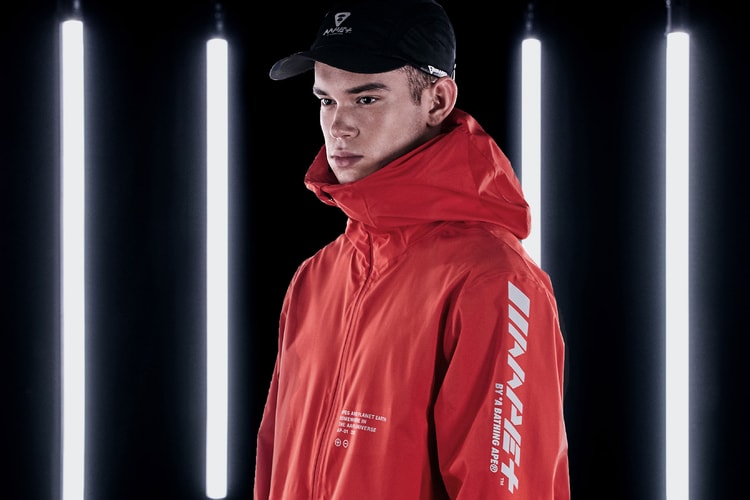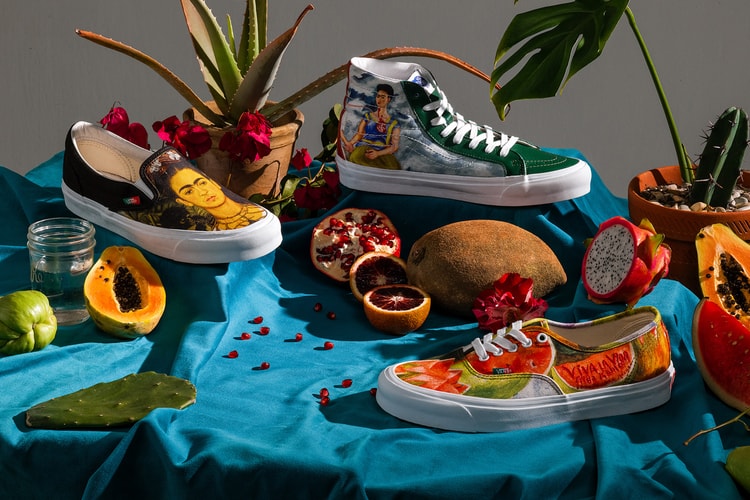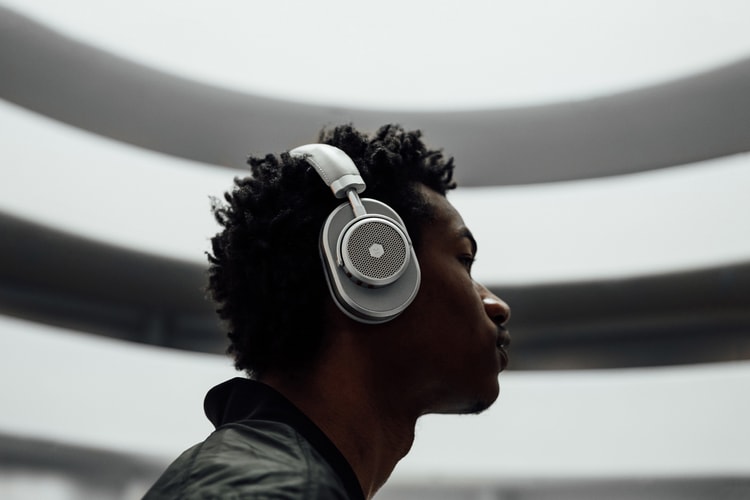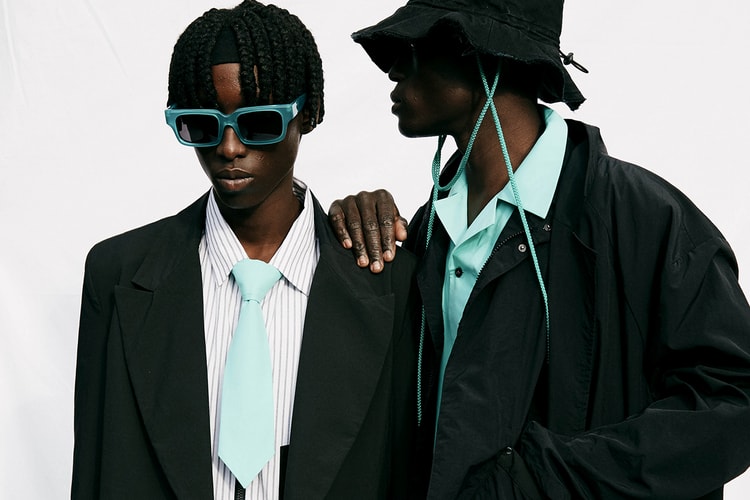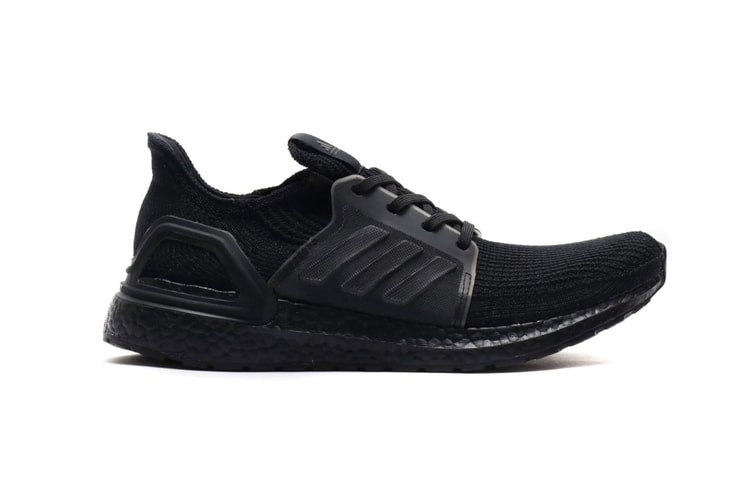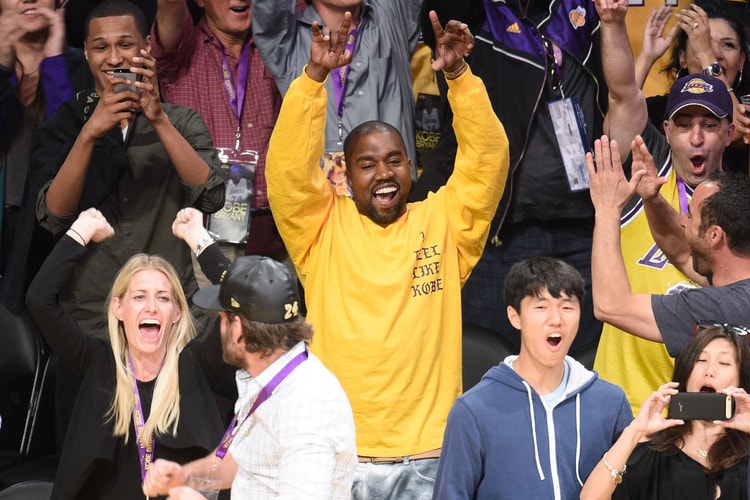Church and Streetwear: A Match Made in Heaven? (UPDATE)
Former members of Mosaic have replied, commenting on the church and its actions.
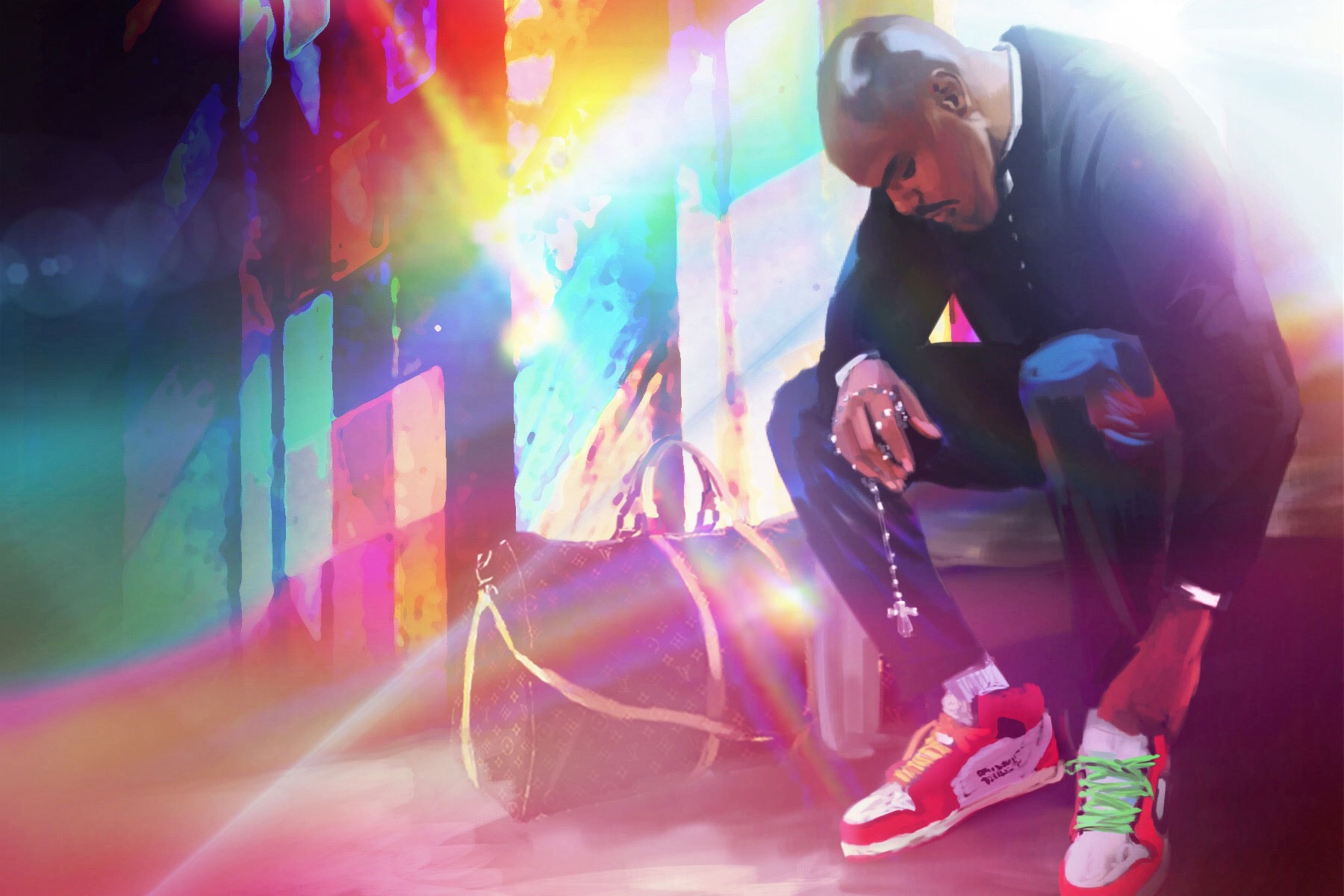
You are reading your free article for this month.
Members-only
UPDATE: In the below piece exploring the relationship between church and streetwear, we quoted Pastor Erwin McManus of Mosaic Hollywood claiming his church is accepting of all people, including LGBTQ members. Since the publication of this article, multiple former members of Mosaic have reached out to HYPEBEAST to dispute McManus’ description of the church, claiming it is not a safe space for LGBTQ people.
We reached out to McManus’ team for comment, and they provided the following statement from McManus and Mosaic: “To be clear anyone and everyone is welcome at Mosaic. Mosaic is one of the most diverse communities that exists. There are currently many people of varied race, color, ethnicity, economic status, sexual orientation, and religious beliefs who attend Mosaic.”
We have printed statements from former members who wished to speak on the record regarding Mosaic’s treatment of LGBTQ members. Read them here. The opinions expressed are those of the commenters only, and do not reflect the views or opinions of HYPEBEAST.
Original Story (May 28, 2019): “Relevance to culture is not optional.”
That statement is one of five of Mosaic’s “Core Values,” along with tenets such as, “Love is the context for all mission” and “Structure must submit to spirit.”
Mosaic is a non-denominational Christian church headquartered in Hollywood, with locations throughout the West Coast and Mexico City. At first glance, its website doesn’t read like that of a church, with polaroid-style photos showing Los Angeles and hands raised at concert-like venues, and promotional videos mixing images of young adults in Thrasher T-shirts with clips of baptisms. Mosaic’s lead pastor, Erwin McManus, doesn’t really look like a stereotypical pastor, wearing Air Jordans and Fear of God in favor of a priest collar. And that is precisely the point. “I purposefully align myself with the person who would never go to church, and I would rather be relevant to them than the person who is already committed to going to church,” McManus tells HYPEBEAST.
McManus is certainly not the only Christian pastor to wear streetwear. Individual “cool” or “hipster” pastors and churches have received their fair share of attention in recent years, but the sheer volume of pastors who wear hyped sneakers and the like may have gone mostly unnoticed outside of Christian circles — including on HYPEBEAST — were it not for the creation of the PreachersNSneakers Instagram account, which catalogs the hyped outfits worn by largely Evangelical pastors.
“Ultimately, pastors are people and I think streetwear/sneakers appeal to them just like anyone else into that culture,” PreachersNSneakers’ creator, who goes by the pseudonym Tyler Jones, tells HYPEBEAST.
Jones doesn’t offer explicit praise or judgement but nonetheless the discordant image he drew attention to — that of preachers teaching the word of Christ while wearing Gucci, Louis Vuitton and Off-White™ — quickly drew media attention and the account has since accumulated 162,000 followers in its two months of existence.
But is it all that shocking to see a pastor wearing Virgil Abloh-designed Nikes? Perhaps, but only in direct contrast to the image of Christianity that has dominated pop culture for the past decade or so. You know the one — Ned Flanders. The Duggars. Jesus Camp. That is to say, a sort of dorky, almost fearful rejection of contemporary culture.
That is not how many of today’s young Christians see themselves and their religion. For them, cultural relevance, creativity and style are not antithetical to faith — they are an integral part of it. They want to make a church in their own image. They want to reach as many people as possible. And streetwear is the perfect conduit to do so.
The Original “Church Clothes”
The Instagram-friendly, YEEZY-wearing pastor of today might look new, but he (and it’s almost always a he) has precedent. “This sort of style-meets-gospel question, it’s an old one. I think that it originated in a place of authenticity,” Lauren Sandler, journalist and author of the 2006 book Righteous: Dispatches From the Evangelical Youth Movement, tells HYPEBEAST.
Sandler’s book traces the early 2000s Evangelical hipster youth culture all the way back to the “Jesus freaks” of the 1960s, who merged their counter-culture style with their religious beliefs in a very earnest way. That was followed by a conservative Christian backlash in the ‘70s and ‘80s, with the church pivoting to what she describes as the “Pat Robertson, buttoned-up, 700 Club” era, when popular music and culture had no place within a house of worship.
Young Christians struggled again with questions of authentic expression in the late ‘90s, post-grunge era, questioning the premise that their faith required them to give up their music or their personal style. Subsequently, young churchgoers began showing up to service in T-shirts that showed off their tattoos. They made spaces for themselves, with RELEVANT magazine launching in 2002 to cover the intersection of culture and faith for the twentysomething Christian. “Then, like all things, the anti-institutional movement becomes the institutional movement,” Sandler explains, as the larger Evangelical church saw how effective these cultural signifiers were to connect with a young audience and began implementing them more widely. “Suddenly, every youth pastor had a tattoo. Suddenly every megachurch had electric guitars in their worship band.”
With tattoos now gone mainstream, today’s church needs a new signifier of relevance. Enter: streetwear. “These sorts of style markers, as they are for everything else, is a way to delineate between generations and to authenticate experiences as something that feels new and personal,” Sandler says.
Today that translates to the likes of Hillsong, Vous, Zoe, Transformation and many more, maintaining active Instagram accounts, selling streetwear-style merch, creating sleek video content, appropriating Supreme-style graphics and developing apps. It only follows that their pastors would dress the part, as exemplified by the likes of Chad Veach of Zoe in Los Angeles, Rich Wilkerson Jr. of Vous in Miami and Steven Furtick of Elevation in North Carolina.
“They’re reacting to the more standardized, conforming image of a pastor,” McManus says of the wave of pastors embracing streetwear — though he notes that, being a generation older than the hip millennial pastors, he’s been wearing streetwear before it became the Instagram status symbol it is today. “And they’re trying to say, ‘Hey this is not the same church that you rejected, this is not the same culture that you walked away from.’ Because most churches that you see reject such street culture.”
But is it authentic? For those inside the church, absolutely. In fact, it’s a return to Christian values.
The Rebirth of Style
For many young Christians, embracing modern culture goes back much further than the 1960s, but represents a return to a sometimes forgotten but fundamental aspect of Christianity: creativity. “I think there’s a renaissance back to things that are creative and beautiful. That used to be very central to the church,” says Josh Kelsey, lead pastor of C3 NYC. “If you go back to the times of Renaissance, the most beautiful art was coming out of church. The most beautiful music was coming out of church.”
Kelsey and his wife Georgie moved from Australia to New York to found the local chapter of C3, which hosts services in hip neighborhoods like Bushwick and Williamsburg. He’s well aware that the church’s use of trendy graphics, language or fashion might appear out of step with Christianity. “Because we’ve had so many years of church being very kind of vanilla and boring and just pretty, it almost boxes your creativity in,” Kelsey explains. “I think in this next generation it’s like we want to express the full creative heart of God through what we wear, through how we create with Instagram or with our music. It’s just an expression of the love of God and how creative he is.”
And if pastors and churches can update their looks, why should the Holy Book be off limits? Alabaster, founded by Brian Chung and Bryan Ye-Chung, makes a new kind of Bible that would look right at home on a coffee table next to a Kinfolk, or even HYPEBEAST, magazine. “We live in an increasingly visual culture,” Alabaster’s founders told HYPEBEAST. “Everyone has a smartphone with a camera, we consume lots of visual-based media, and we judge websites based on how well they’re designed. Instead of shying away from these realities, we thought — how could we bring this to a faith-based context?”
They see this melding of Christianity and art moving into the secular context as well. “We think fashion (streetwear and non-streetwear), which is often categorized with art, could also be part of this movement of creating excellent art that is informed by faith,” Chung and Ye-Chung say. It’s not just C3 and Vous bringing streetwear-style clothing to the church, after all; in the case of Fear of God, Jerry Lorenzo has managed to imbue his faith into one of the most influential streetwear brands of the moment. “My faith informs everything I do. For the brand, it gives us reason. Reason to speak, purpose in how and why we communicate. The ultimate message is that we believe you need faith in your life more than our physical pieces,” he tells HYPEBEAST.
As Lorenzo notes too, luxury clothing has long since had a place at church — it’s just that today’s version of luxury looks different. “Pastors have been in thousand dollar suits for years. In the hood, we grew up wearing our ‘Sunday Best.’ Our best clothes were our church clothes. They were almost sacred,” he says. “Pastors reflect what the church is wearing. People are in church in streetwear today, not suits, blazers and slacks.”
Pastors are on stage to be leaders, however, not followers. “My hope is that pastors will actually be so aware of culture and so aware of creativity that they’ll be changing ahead of the culture,” McManus says. And creating the best fashion, the best art, the best design, is merely part of following the teachings of Christ. “When Jesus turned water into wine, he turned it into the best wine in the world,” he adds.
#Blessed #Driptoohard
As aesthetically-mindful Christians themselves, Chung and Ye-Chung are appreciative of pastors who connect with young audiences through their fashions. But they understand why the image of a pastor in expensive clothing on Instagram may induce skepticism, as it begs a bigger question. “How do we feel about how people in power are using their money?” they ask. “What we know about the story of Jesus was that he was good news to the poor, the oppressed, and the marginalized.”
PreachersNSneakers does not merely showcase what pastors wear, but how much those items cost. “I think this is partly why this account has blown up because people had no idea what some of these items were worth,” Jones says, noting that posts featuring designer brands like Gucci or Balenciaga incite the most passionate reactions. In that context, the images call to mind the likes Joel Osteen or Creflo Dollar, Evangelical megachurch leaders who not only don’t apologize for their Rolls-Royces or McMansions, but point to them as symbols of God’s love — symbols that you too could obtain, if you follow their lead. Known as the prosperity gospel, that philosophy has been critiqued by many Christians.
However, Kelsey believes there’s a fine line in how much to criticize a pastor’s fashion choices. “Should we set a price limit? What is that?” he asks. “I think we get to really, I don’t know, interesting territory when we start to police and feel like leaders can’t just be themselves and express themselves.” Both he and McManus emphasize as well that critiquing one luxury item doesn’t take into account the bigger picture. “It’s not how much you have, it’s about how much you give,” McManus says.
And some streetwear-loving pastors would maintain they aren’t necessarily participating in lavish spending when they wear designer sneakers. Chad Veach claimed in an Instagram comment that he was gifted the high-end items he wore in a PreachersNSneakers post. “A lot of the shoes are just gifts,” confirms Kelsey, describing it as simply a byproduct of preaching to a young, urban and stylish crowd. “They know people in Nike, or they have a friend that has a connection, and they give them things.”
But that symbolizes a new kind of prosperity. It’s not about money, but coolness — a proximity to celebrity, to fashion, to the insider crowd. Jones notes that many pastors have been wearing shoes from Virgil Abloh’s “The Ten” collection, which are status symbols not merely for their price, but their scarcity.
“Off-White™ is the abundance of now,” Sandler says. “Yes, it’s about signifying knowledge and wealth, but I also think it’s about signifying an in our an out.”
For some of these pastors, these connections to the “in-crowd” goes beyond merely having a friend at Nike; Wilkerson officiated Kanye West and Kim Kardashian’s 2014 wedding and, along with Veach and Carl Lentz of Hillsong New York, forms part of Justin Bieber’s inner spiritual circle. Hillsong’s services also include reserved seats for celebrities.
“I think that there’s something about the church which is deeply exclusive even with its goals of inclusivity,” Sandler says. “You are in or you are out. You are saved or you are not.” Certainly fashion, and streetwear, know that tune all too well. And that access to the “inside” is perhaps more valuable to a generation conditioned to chase followers and likes than any amount of money could be.
“LOVE”
You can keep your Supreme. Your Instagram. Your tattoos. Even your Dolce & Gabbana. You can wear them loud and proud, in fact. But at what point does a trendy new pair of sneakers simply serve to make “traditional” views more palatable? Does cultural relevance only apply so long as it doesn’t push back against patriarchal or homophobic teachings?
Church Clarity, an online database dedicated to cataloging churches’ stances on LGBTQ issues and the role of women in leadership, has found many of what it calls “celebrity churches” to be unclear on those topics. It’s simple enough to champion love and sisterhood on the surface, but the specifics are more conflicting. Veach, for example, has declined to speak on “lifestyle issues,” calling it “distracting,” while also quietly acting as executive producer for a movie that disavows same-sex attraction. Hillsong New York’s lead pastor Carl Lentz has spoken out against legislation advancing reproductive rights, and the church itself has encouraged its congregants to vote against legalizing same-sex marriage in Australia and maintains an eldership comprised exclusively of men.
The “cool” churches of today that peddle heteronormative ideals under a veneer of modernity are following the lead of their early 2000s counterparts. “You can be free to have tattoos, but you can’t be free to be equal in a relationship, or you can’t be free to be gay of course. You can’t even be free to consider in many cases birth control, much less abortion,” Sandler says of the Evangelical churches she reported on in Righteous.
That is not to say all modern megachurches are equally opaque on matters of equality. McManus maintains that Mosaic’s mission to be inclusive really does mean just that, noting that the church has women in leadership at every level and that its services welcome not only Christians, but atheists, Muslims and Buddhists. “I don’t have data on this, but I’m going to guess that we probably have more people who identify themselves in the gay community at Mosaic than probably any church in LA, just by the sheer virtue and the size of Mosaic,” he adds. “And so our posture has always been we’re for everybody.”
For Chung and Ye-Chung, the scrutiny on male pastors’ wardrobes does pave the way for a new sort of parity. “We’d also be interested in how women view this issue,” they say. “So much of church culture and history have been men commenting on what women should or shouldn’t wear. This feels like an interesting turn of events.”
When done correctly, the use of the right design, the right fashion, the right language, to speak your relevant audience can be deeply persuasive — whatever message lies underneath. Streetwear may be the aesthetic code that appeals most to today’s generation, but using style to advance an agenda is a strategy that both the right and the left have employed for decades. “In the ’60s, the left figured out that if you can connect meaning, and purpose, and identity to culture and community, you can do anything,” Sandler says. “The Christian right has just figured this out and they are doing it better than the left ever did. I think that that’s a lot of what’s happening here, is connecting identity, purpose, and meaning to culture and community.”
The Church of Streetwear is Now in Session
If your goal is to reach as many people as possible, why wouldn’t you pick up every tool available to do so? Celebrity, followers, influence, style — these are all natural allies to Evangelical Christianity, and allies that can be easily harnessed in the Instagram era. And streetwear is not simply the trendy packaging of the moment, it’s a fashion movement particularly well-suited to the goals of Christianity; it centers authenticity, relevance, community, and, yes, men, all crucial elements throughout the church’s history. “The goal of the Evangelist is to be the ultimate influencer, and this is how we influence now,” Sandler says.
However it’s no longer simply a matter of the church embracing streetwear, but streetwear embracing the church.
“What’s interesting is that I was asked to do this interview with a huge Christian magazine and I prefer doing it with HYPEBEAST, because I think HYPEBEAST is more relevant to the culture that I care about,” McManus says.
No one makes a better argument for the marriage of church and streetwear than one of today’s most important influencers: Kanye West. West has made allusions to Christianity throughout his whole career, but his Sunday Services take elements that may have once been confined to a song or an album and dials them up to a fully immersive, spiritual, and exclusive, experience. (But the masses who weren’t invited will still absorb the message on Instagram, YouTube and Twitter.)
Whether West is merely playing with symbolism, the way any artist does, or truly positioning himself as a spiritual leader is less clear. Are the hordes of mauve-clad Coachella followers a winking nod at cult-like attire, or the beginning of an actual, well, cult?
Actual pastors like Kelsey and McManus for now watch with hope and a grain of salt. “I think the search and the seeking of God is genuine for him, and he’s trying to figure out how to express what he’s beginning to discover,” Kelsey says. “But I’m praying that he gets a wise counsel to actually shepherd people the right way.”
Sartorially speaking at least, West is already leading his people down the path of “normcore holiness.” At his inaugural Something in the Water festival this April, Pharrell Williams not only wore a coveted “Church Merch” sweatshirt from Kanye’s Coachella Sunday Service, but installed his own pop-up church service. Kid Cudi’s collaboration with Cactus Plant Flea Market for Rolling Loud music festival features T-shirts with slogans like “Cudi Saves” and “Baptized in Fire.” If Kanye West says faith has a place in streetwear, who are we to argue?
“Streetwear felt like it had to go against the church, because the church was against the streets. Now it’s almost like they found each other again. I think it’s a beautiful convergence,” McManus says.
———————–
Statements from former Mosaic members regarding its acceptance of LGBTQ members.
I was a prominent volunteer at Mosaic for several years, and while I served in various capacities, the majority of my time (40-plus hours/week volunteering) was spent with the worship team. It was there that pastors first began to out my LGBTQ+ peers to me. I would hear from them directly that “so-and-so was being asked to step down because he’s gay,” or that a staff member had cornered someone to confront them about their sexuality. The rumors always moved quickly and were so widespread that when the person in question was no longer seen on stage or at church, everyone knew why.
I’m a queer woman, and I’m out and married now, but I grew up in a Christianity that was hostile towards LGBTQ+ people. My life revolved around faith/church, so I never really bothered to question my sexuality. I believed the two were mutually exclusive and I was certain of my spirituality.
As such, at Mosaic, I was at first perceived to be straight. This meant I got the inside scoop about their position on LGBTQ inclusion. A pastor told me, “We believe it’s a sin, but that it’s not our job to change them, it’s God’s job to change them.” How this played out practically was that if you were not cis/straight, you were disqualified to lead. You were “unhealthy,” or “couldn’t be trusted.” Your sexuality/gender identity was indicative of something fractured in you.
A couple years into my time at Mosaic, rumors started about me. I first heard through the grapevine that the pastors were telling people I’m a lesbian. I later learned this was not just circulated to all my peers, but that my “sexual confusion” was discussed by the entire staff at a staff meeting. It is surreal knowing I was sitting in the congregation to learn about God from them on Sunday, not knowing later that week they’d be together swapping opinions about whether or not I was gay. I confronted several pastors about specific rumors they spread about me and a female friend, and got responses such as: “Well, you do post a lot of pictures with her.”
A few years after leaving Mosaic, I came out and later married that same friend. She had also been mistreated by Mosaic and had supported me as I left the church altogether. But when I came out, the experiences I had at Mosaic stayed with me and created a lot of anxiety and self-loathing that complicated things. I was afraid that coming out and pursuing this romantic relationship meant I was proving them right and therefore deserved to be outed, mistreated, and gossiped about. It took resilience to recover from what it felt like to be a queer person at Mosaic, and to stop believing I deserved to be treated so badly.
Mosaic, LGBTQ+ people show up assuming you’re telling the truth when you tell us “You Belong Here;” believing you when Erwin says you’re “for everyone.” Many of us have been betrayed already by our families and religious communities and hope Mosaic will be a refuge for our tired souls. You do more than betray us when you make these promises, profit off our trust and presence, and then tell us there’s no room at the table for us because of the hidden things you’ve always believed about who we are.
– Torri Blue, attended Mosaic Hollywood

John Price/Unsplash
When I first entered the doors of Mosaic I saw a large screen that read “Welcome Home” and a message preached of all are welcome. However, after two years at Mosaic volunteering over 30 hours a week, being a part of the first class of Mosaic College and working with the inner circle, I saw the opposite to be true.
At Mosaic College, we were taught that being gay was in fact a sin and we were told that if anyone were to ask us Mosaic’s viewpoint on homosexuality that we should not answer, and refer them to a pastor, as it was not the battle they wanted to fight publicly. But they did fight it privately. I was a member of a gay bible study made out of LGBT members and allies of Mosaic. There, every week I would hear story after story of people being asked to sit in the back, step down from leadership. I was once told by a founding pastor, “Lesbians aren’t really gay, what woman wants to be with another woman sexually? It’s just mommy issues.” For Mosaic to claim it is a safe space for LGBTQ people is a complete and utter lie, and a deception designed to prey on the vulnerable and continue to push a Southern Baptist evangelical agenda.
– Anna Abbott, attended Mosaic Hollywood
I joined Mosaic because a friend of mine, who is gay and raised Christian, brought me and hyped it up, saying how amazing it was. I had never been to church and was not raised with any religion. I have always been hesitant about Christianity because of many Christians’ views on homosexuality. I was told by my gay friend that Mosaic was different and accepting of everyone.
I wound up loving Mosaic, mainly because of the music (it’s like the best rock concert you’ve ever been to) and the community of wonderful people I met. Eventually, a large group of new attendees wanted to be baptized but had some questions, so Mosaic set up a Q&A session. The only question I had was about their views on homosexuality, as it obviously reveals deeper problems. I had just heard from another gay friend that he went through Mosaic’s entire volunteer program and, once he got to the final stage, was told he would not be allowed to serve in a public position because of his sexuality, just like you weren’t allowed to serve publicly if you were having sex or sinning in other ways. He was sad and disappointed that they waited until the end to tell him this, after he had already committed to contributing 10% of his income to the church.
In the Q&A with Erwin and Hank, I asked why homosexuals were not allowed to serve in the same way as heterosexuals, and we had a bit of a back and forth, as the answers the pastors gave were vague at best. Finally, they admitted that Mosaic interprets the Bible to say that homosexuality is a sin and they go off of what the Bible says. The pastors said that Mosaic is accepting of everyone because all sins are equal and we are all sinners, confirming that they view homosexuality as a sin. The way they would talk and preach about acceptance vastly conflicted with these views and talked around the issue instead of directly addressing whether or not they thought homosexuality was a sin. Ultimately, it seemed that they were using LGBTQ people to make them seem cool and accepting, while secretly looking down on them and not allowing them to equally be involved in the community. As an ally, this didn’t sit right with me, so I left Mosaic.
– Anonymous, attended Mosaic Hollywood
I attended Mosaic, off and on, from 2012 to 2016, the bulk of my deeper involvement being from 2014 to 2016. While I made some life-long friends and positive connections, the overall rhetoric and atmosphere there was one of secrets, lies, cliques and exclusion, and a very toxic “don’t ask, don’t tell” environment. I watched, firsthand, as they belittled, degraded, and gossiped about Torri Horness and Alex Gronlund (now Torri and Alex Blue). There were weekly whispers, gossip, and rumors about their sexualities and the nature of their relationship, and it was never friendly or harmless fodder. It perpetuated an environment where it felt like you had to conform and assimilate to the church’s status quo of straight, white, youthful, and “of the now cultural relevance,” and if you weren’t those things, you really didn’t belong there. All varieties of people were welcome through their doors, but once you sat in their seats, they attempted to slowly whittle you down into carbon copies of what or who they deemed to be “right.”
Watching how they spoke about and treated Alex and Torri, I was terrified to ever come out as a bisexual woman. I had long held and am still working through shame regarding my sexuality. Being brought up in the church since I was a toddler, I had had hopes that Mosaic would be different and would make me feel confident in becoming the “best self” I could be. Their self help sermons and “you belong here” and “all are welcome” veneers lured me in at a time in my life when I was desperately hoping that church and church community could be healing and help me work through my issues. Instead, I found that the rhetoric of “don’t ask, don’t tell” and “pray the gay away” were their true beliefs and that I could never move forward within the church or ever truly be welcomed or belong if I was pridefully out and unashamedly myself.
I left Mosaic in 2016 and their treatment of me and fellow members of my LGBTQ community left me with so much shame that I am still closeted to my parents and most of my family. Watching the way Mosaic has continued to blatantly lie and promote their church as a place of inclusion, when it is most certainly not, has inspired me and emboldened me to come forward and share my story of attendance at their sham of a church. If my story can help save one gay/LGBTQ identifying person from attending their church and going through even an ounce of what happened to me or my friends, then it will all be worth it.
Mosaic is not a church, it is a cult in which you must assimilate or pay the price of exile. This is how they treat their members and this is how they treat anyone in the LGBTQ community that ever has had or will have the misfortune of walking through their doors.
– Sarah Hollins, attended Mosaic Hollywood
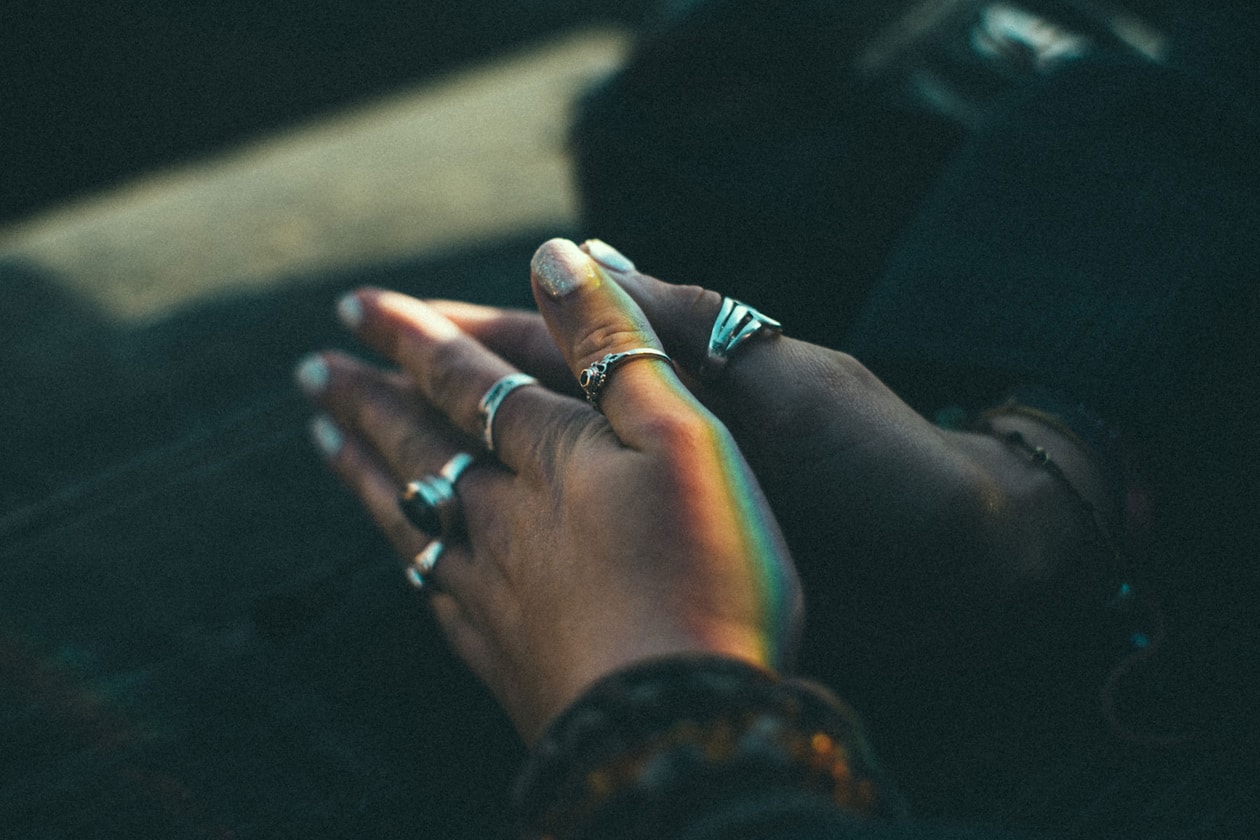
Michael Heuss/Unsplash
I attended Mosaic for three years and left when I was fed up with how they treated women, the homeless, people that didn’t fit in their culture, and LGBTQ friends of mine. Those in places of power within the church allowed “outsiders,” like my LGBTQ friends, to serve in the most humbling ways, such as cleaning bathrooms and floors, serving food and doing the daily work it takes to keep a place like that running, but they were never allowed to serve in any position of leadership.
It was extremely disappointing when it became clear that they would take the free labor and the money of those people, but would not allow them to take on any task that was deemed too “important” because of their “sin.” At this point they are blatantly lying by saying they are “inclusive” just to gain members. I really don’t want my LGBTQ friends to feel like they have a safe place to go there when they do not.
I am also a curvy girl and was asked to change my clothes there while cleaning bathrooms on an off day (a non-Sunday) by a woman in leadership because I was “too much of a distraction to the men” (there was no men there). It’s really hard for Christian men and women not to be obsessed with hiding and controlling women’s bodies, as I’ve found out through a lifetime of body-related church trauma. Mosaic is no exception there.
I am sick and saddened by cultures like this — which, if I may say, are the complete and utter opposite of the “Jesus” they claim to serve. That is the point of the “good news,” that we have always been enough. And always will be. I now stay far away from any place that claims to “love Jesus” but doesn’t have that truth at the center of what they do.
– Anonymous, attended Mosaic Hollywood
Several people from the Mosaic “inner circle” and staff members made comments and speculations about Torri’s sexuality to me. All were made in a gossiping and disapproving way. People would say she should dress differently or stop being so affectionate to girls. I also remember being told as a part of my initiation into “volunteer staff” (a role that is treated with a lot of honor because you get in with the cool kids, but is really just working tirelessly for free) that Mosaic had a policy that no one who identifies as LGBTQ was allowed to be in volunteer staff, because they were actively choosing sin as a lifestyle. They are welcome to attend a service, but cannot volunteer or be seen on stage. The same went for anyone living with someone of the opposite sex. This policy is a big part of why there was so much speculation and concern over Torri’s sexuality, as she was a worship leader and heavily involved on a leadership level. Her coming out would mean she would have to step down.
Mosaic loves to appear progressive and inclusive but there are a lot of conditions to belonging there, beyond just sexual orientation. Many people have left that place very hurt by their conditional way of “loving people,” including myself.
– Emily Capshaw, attended Mosaic Hollywood
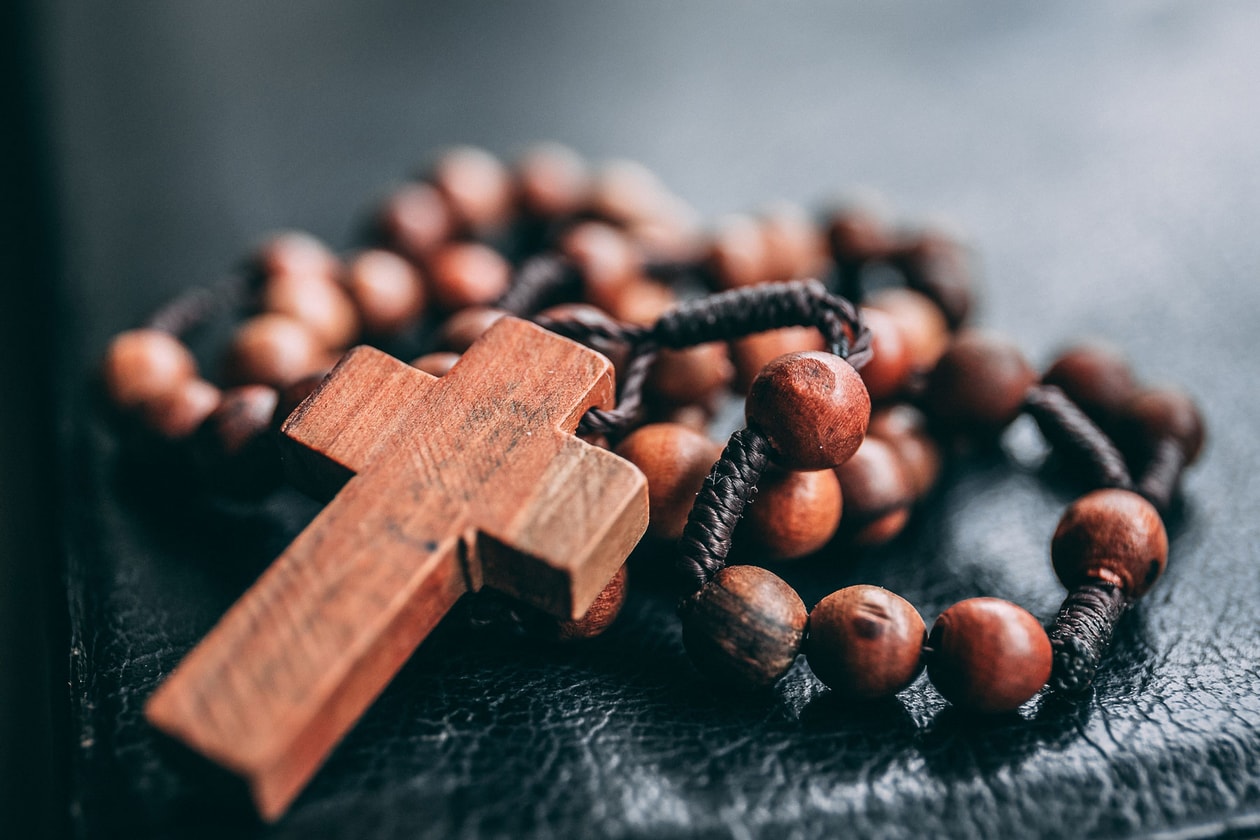
James Coleman/Unsplash
My name is Alex Blue (formerly Gronlund) and I’m married to Torri Blue (formerly Horness). We met at Mosaic when we both were still very closeted. Torri and I both weren’t even really out to ourselves then. When I started attending I became close friends with Torri very quickly. I knew she was really on the “in.” Pretty quickly I started singing for the worship team and eventually started leading when I “became trustworthy.” Although I was allowed in, I had always felt anxious, unwanted and on the outside. I have an internet following and felt that my “influence” was used by them to get people to come to their church.
I never heard anyone say explicitly what the church’s stance was on LGBTQ affirmation or inclusion, but I knew how that group of people was treated. I saw volunteers who were suspected of being gay disappear from the church. LGBTQ people were talked about as “weird” or “untrustworthy.” I knew that people were talking about Torri and me by the gossip I would hear from random people at the church. A friend I had on the worship team told me that he heard someone warn another worship team member who wanted to ask me out to “be careful” because, “I hear she’s a lesbian.” Torri’s sexuality was also gossiped about by pastors. When Torri went to a pastor about this, his response was, “Well you do post a lot of pictures with Alex.” I was already ashamed of my sexual identity, and Mosaic’s culture of gossip left me more confused and scared.
I left Mosaic soon after this. The horror stories I heard from friends, accusations from my close friends of being abused, and the demand of conformity and loyalty from those in power are to thank. It is only after leaving and coming out that I have heard so many more accounts from LGBTQ individuals of the abuse and shaming they experienced firsthand.
Mosaic is a church obsessed with reputation and perception. What they do to people who won’t conform or who criticize is shameful and childish. It’s also incredibly harmful. They claim to be the “epicenter of the universe” (a quote from a pastor) and scare/shame you out of ever leaving or “bad-mouthing” them. After I left, no one said a word to me. I later learned that a friend who is a pastor there was calling me dangerous and telling people that I was making people stray from God. I confronted this person and got no response.
The LGBTQ community is not affirmed there. They are allowed in just as long as they are making Mosaic appear welcoming from the outside.
– Alex Blue, attended Mosaic Hollywood
I attended Mosaic from 2014 to 2017 and during that time I became known as a leader on the Connections Volunteer Team. It was my job to speak to first-time guests and convince them to get involved.
I was once speaking to a girl who told me that she really liked Mosaic, but was scared of becoming more involved because at her last church they made her sign a “purity” contract. She was currently living with her boyfriend and did not want to get herself into the same situation again. I assured her that Mosaic wasn’t like that. That we accepted everyone! That is what I had been told and that is what I believed.
Later on, I mentioned the conversation to a pastor. They responded to me with, “It is our job to get her here. Once we do that, Jesus will show her the error of her ways and change her.” Others confirmed to me that this was the phrase they used when speaking about homosexuality as well. As someone who arrived as a Catholic, I know this is how they felt about other religions.
The “We accept everyone” spiel is used to entice people in the hopes that they will be converted into Mosaic’s way of thinking. Mosaic attracts a lot of vulnerable people — people who are new to the city, people who have already been burned by the church, people who are going through difficult times. It is dangerous for them to believe that they will be accepted into a community that I have seen be abusive and manipulative in many ways.
– Dani Gregorie, attended Mosaic Hollywood
I attended Mosaic for 10 years, my last three or four were served on the worship team. Following a breakup with a band member I was asked to step out of worship in order to give the breakup some space, even though it was amicable. I then discovered that the guy I had been dating had not also been asked to step down. I questioned the pastor who had made this request of me, and then found out that the “real” reason I was asked to step down was because of a relapse I’d had two months prior.
I struggle with depression, cutting, and suicidal thoughts. All of which I’m very open and transparent about. So when it occurred, minor as it was, I still shared it with my “pastors.” Because that is what you’re taught to subscribe to, “Reach out to us, let us be there for you, you’re not alone anymore.”
However, for two months after my relapse, not one of these leaders checked back in on how I was doing, in regards to my mental wellbeing. This confused me as to why it had now become grounds for my being asked to step down from worship.
I could never bring myself to go back after that. And though it was ultimately the best decision for me, it wasn’t without devastating repercussions — mentally, spiritually, and physically.
I share all this because it wasn’t until leaving Mosaic that I felt safe enough to actually question my sexuality. I had always felt like my sexuality was different from “normal,” or at least that there was something there to be curious about. But I knew Mosaic’s stance, and knew it wasn’t something I could talk about with anyone if I wanted to lead and be involved in that capacity, or be accepted for that matter. Identifying as LGBTQ, or even admitting to having a mental illness, for them is a sign that somehow your faith is waning — you’re not praying enough, reading your bible enough, otherwise you wouldn’t have these “problems.” You’re not enough as you are, and you’re problematic.
Ironically, for some time Mosaic even had a saying that they’d paid to have printed on a billboard outside the Hollywood location, “COME AS YOU ARE.” This is the lie. Mosaic says they’re accepting, but if you look not at their words but their actions, you can clearly see where they stand on these topics.
I am still unclear on my sexual identify, it’s somewhere between fluid/Bi and gay. It’s still something I’m searching out. I have since dated a female, and felt a sense of relief and completion, like a final understanding of myself and my sexuality, and I still struggle with feeling like it’s bad, I’m bad, and there’s something wrong with me. From my time at Mosaic, I still carry this deep fear that if I speak my truth, say who I really am, I’ll be ostracized, abandoned, and alone.
– Anonymous, attended Mosaic Hollywood
Note: The above statements have been edited. The responses have only been modified with length, not content.

